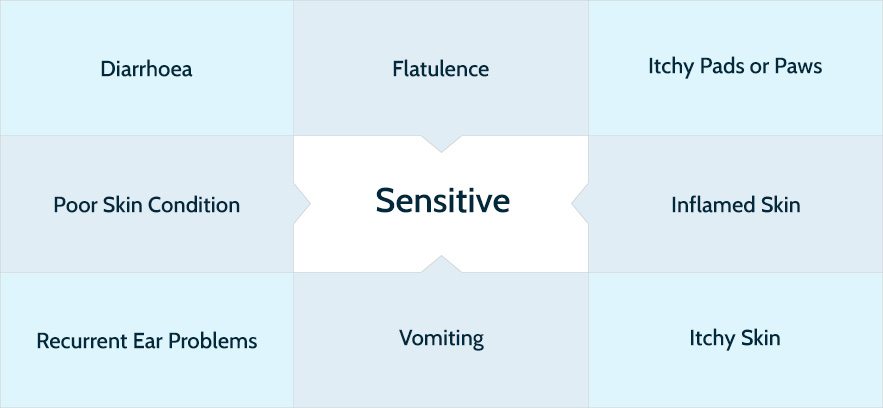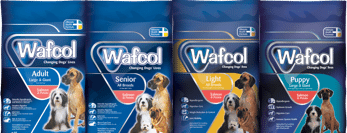Dietary sensitivity in dogs is a tricky one to deal with for both animal and human, especially as our dogs have no way of communicating their feelings to us. Dogs are family, and we often look after them better than we look after ourselves.
This means that it can be really distressing for us pet parents if our dog is suffering from terribly itchy skin, diarrhoea that doesn’t seem to let up or bad flatulence. Usually, the difficulty is that we don’t know how to help our furry friends, and this often results in distressing visits to the vets – leading to questions like, is my pet sensitive? And how do I deal with their sensitivities?
Once general illness is ruled out, the first step in understanding your pets’ dietary sensitivity is to learn about those all-important warning signs and symptoms that your dog might be displaying. Once this is identified it’s important to understand what is acting as a trigger and whether the sensitivity is a food allergy or an intolerance.
An allergy or intolerance can make itself known in many different ways and it is very easy to mistreat these symptoms as temporary illness. There is no one specific symptom of dietary sensitivities in dogs, however, signs of an allergy or intolerance can be very similar, meaning that their treatment is the same. Common signs of either a food allergy or a food intolerance can be any of the following…

NB: It is important to point out that these symptoms can be caused by other conditions, so it is important to seek advice from your Veterinarian to rule these out.
A food allergy is an immune response to a particular ingredient within your dogs’ current diet. Whereas a food intolerance is a reaction to an ingredient that cannot be tolerated by your pet, meaning it may be able to be consumed in small quantities, but it’s advised that the offending ingredient/s are avoided once identified. These dietary sensitivities are most commonly related to cereals, dairy and meat – ingredients which are excluded from ‘hypoallergenic’ dog foods like Wafcol. Read more about Dietary Sensitivities and what causes them here.
You may find that your dog does not suffer from these health problems all the time, more that they will come and go. Also, it is possible for your dog to react to an ingredient that they have previously eaten with no problem.
We’re sure this leads on to your next question; how can I help my dog and change their life for the better? It’s simple really. Once the dietary sensitivity has been identified, remove these ‘allergens’ from your dogs’ diet and you will see noticeable changes in your dog after as little as 6-12 weeks of feeding.
So, why choose Wafcol?
…Because we know that the most common ingredient known to cause an allergic reaction or intolerance for your dog is the protein source. Meaning that we have developed our sensitive range to contain only one protein source. Your dog can choose from Salmon, Chicken or Ocean Fish within this fantastic range of dog foods.
The Wafcol recipes were also developed with a leading dermatologist and former BVA (British Veterinary Association) President, Harvey Locke. This means that we are absolutely aware of all those nasty allergens such as; cereals, grains, gluten, dairy, red meats & soya – and we know what adverse reactions they can have for dogs with sensitive digestive systems. So we have simply excluded them from our Salmon & Potato recipe.
Nothing makes more sense than feeding your dog a food that will help their sensitivities and change their life – what’s more Wafcol is super tasty and dogs love it!

